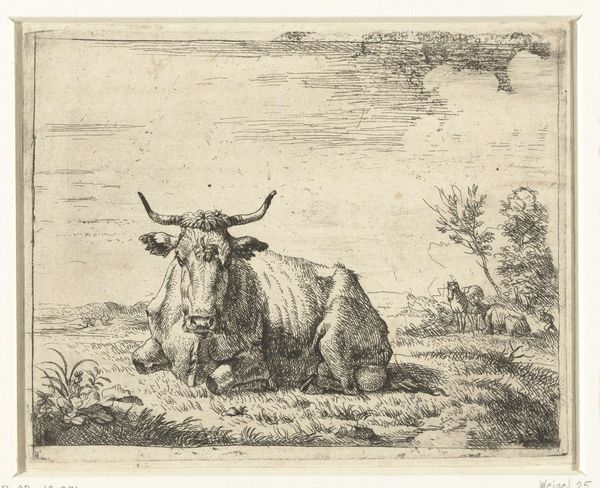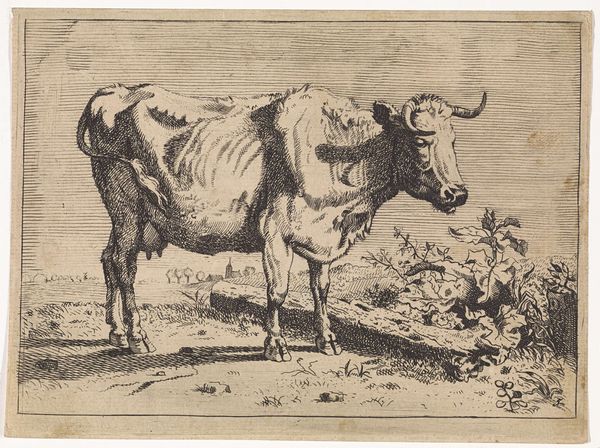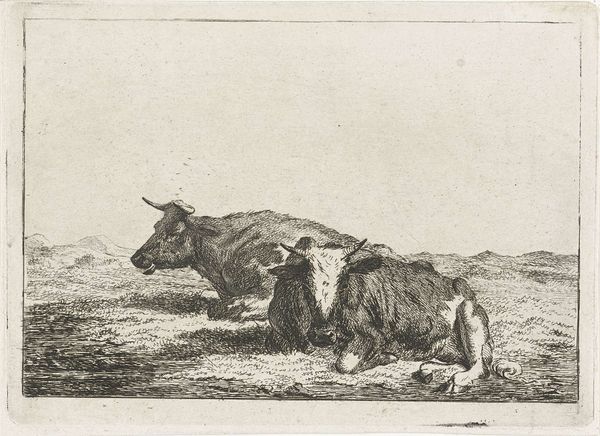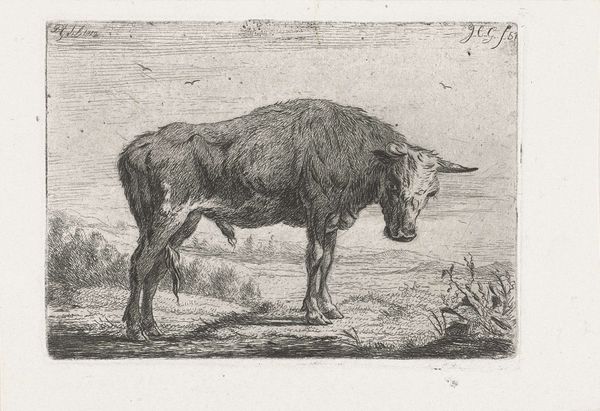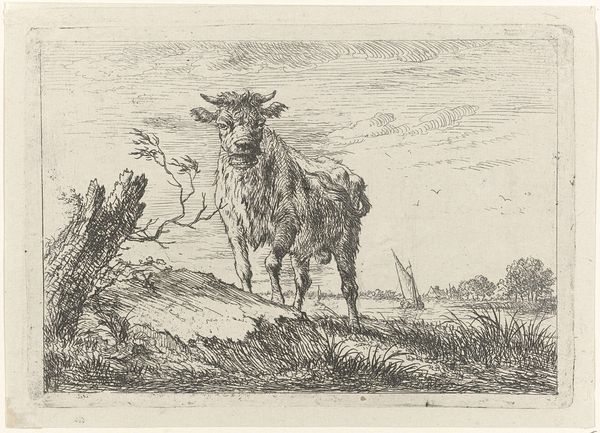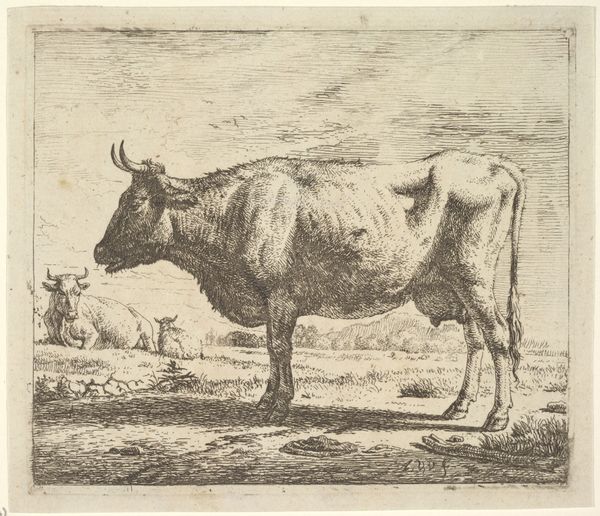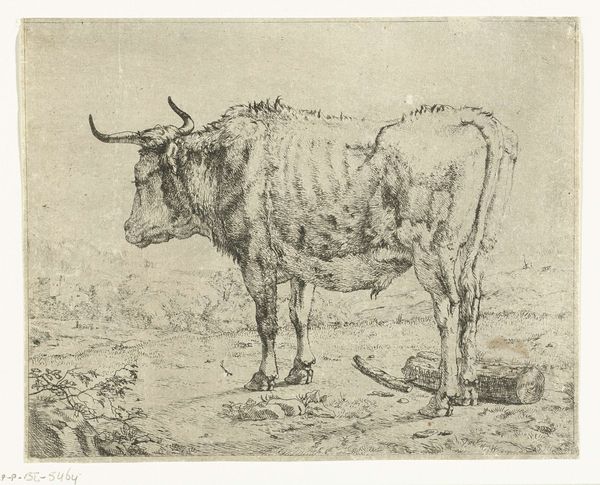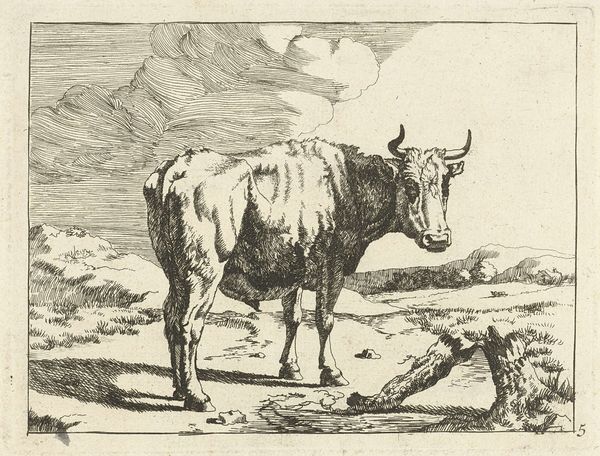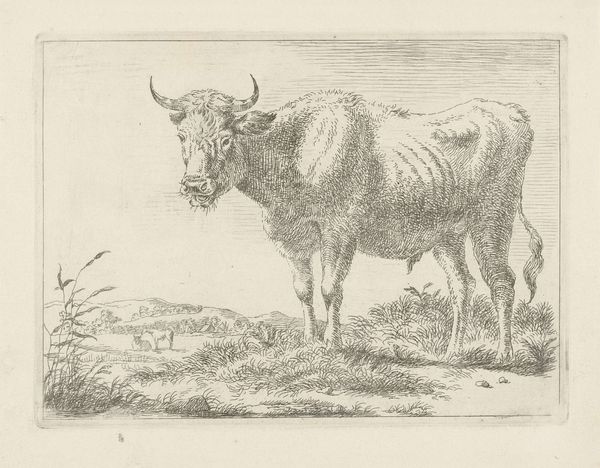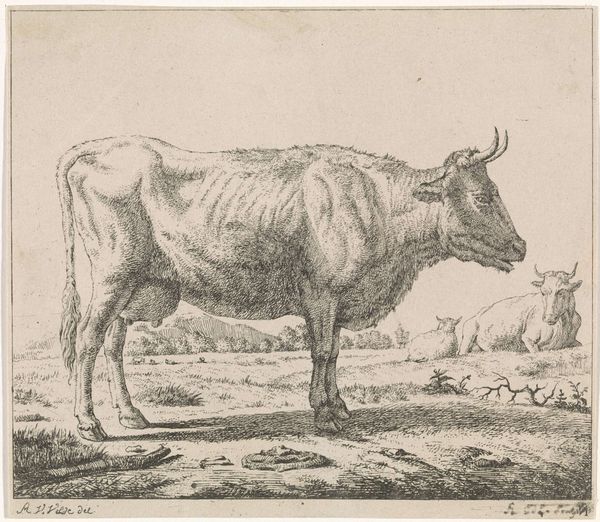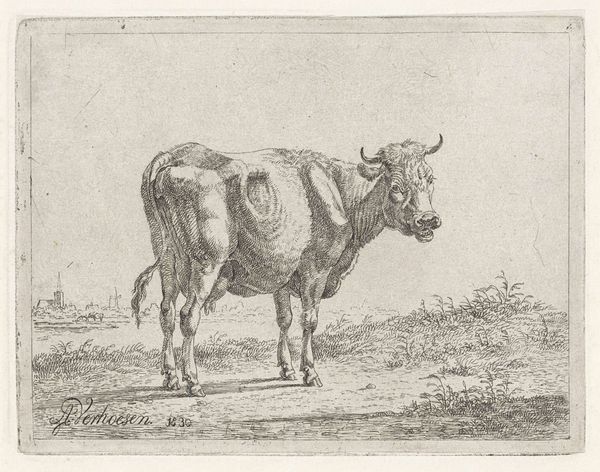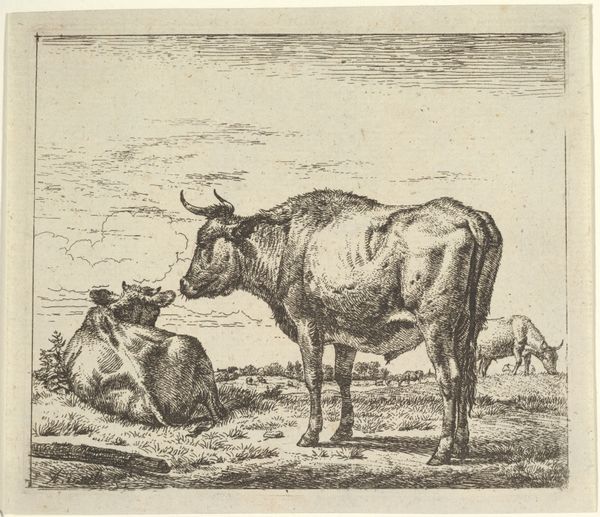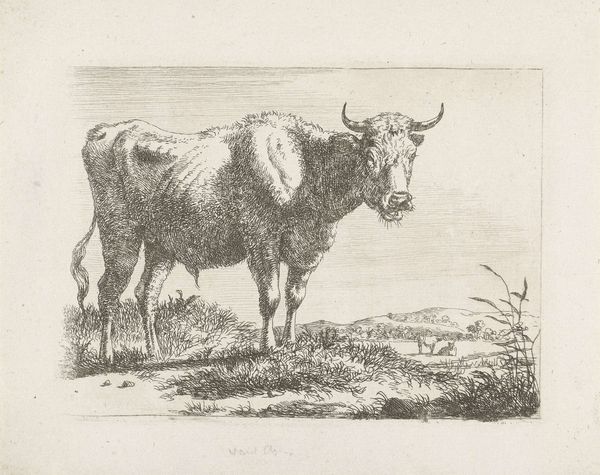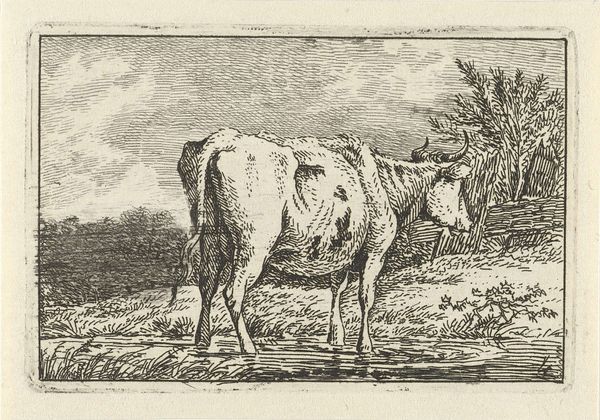
etching
#
dutch-golden-age
#
etching
#
landscape
#
figuration
#
genre-painting
#
realism
Dimensions: height 140 mm, width 176 mm
Copyright: Rijks Museum: Open Domain
Editor: We’re looking at "Liggende koe in een landschap" (Lying cow in a landscape), an etching dating from 1650-1700, from an anonymous artist in the Rijksmuseum collection. The cow seems so central and content. How do you interpret this work? Curator: It’s compelling, isn’t it? Look at how the cow dominates the scene. During the Dutch Golden Age, landscape art often subtly reinforced ideas about land ownership and national identity. Think about the power dynamics implicit here: this image elevates livestock, a primary economic driver, effectively centering the nation's wealth and prosperity on the animal itself. Editor: So, it's not *just* a cow? It's making a statement about wealth and prosperity? Curator: Exactly. And the animal's "lying" position can even suggest the wealth and security to ‘rest’ like this – evoking ideas about the societal values, comfort and ease derived from their labor and economic output. Editor: That makes me think about the lives of people in contrast to the relative comfort of the cow. Curator: Precisely! We have to ask ourselves, *whose* landscape is this? For whom is this prosperity intended? And at what cost is this idyllic scene produced? The cow rests while the working class perhaps... doesn’t. How does that reframe your initial reaction to it? Editor: It definitely makes me see it in a more complex, critical way. I’m grateful for your reading of the history and intersectional meaning. Curator: That’s the beauty of art, isn’t it? It offers a lens through which to examine our shared histories and the power structures that shape them.
Comments
No comments
Be the first to comment and join the conversation on the ultimate creative platform.
